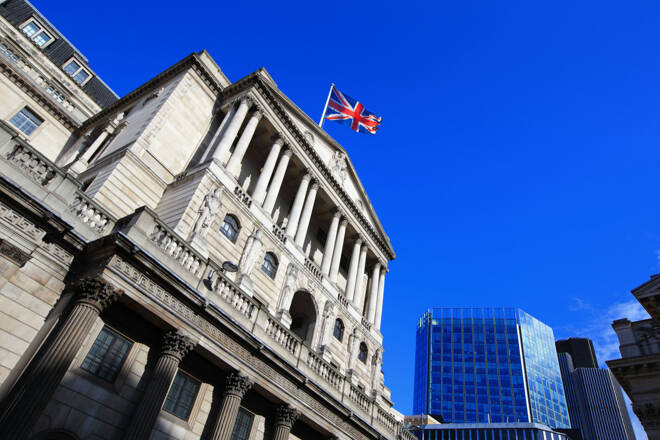Advertisement
Advertisement
Bank of England Chief Economist Talks Inflation and Policy
By:
This morning, BoE Chief Economist Huw Pill delivered one of two speeches to provide the GBP/USD with direction early in the European session.
Recent central bank monetary policy decisions and economic indicators have increased market sensitivity to Bank of England commentary.
This morning, BoE Chief Economist Huw Pill was in the spotlight again. Huw Pill spoke at the UBS European Conference on global monetary policy challenges.
Huw Pill reiterated comments from Friday saying that there is more to do. He added that the Bank needs to raise rates and pointed out that the UK is entering a recession. Unsurprisingly, Pill also talked about gas prices.
The GBP/USD responded to Pill’s comments, recovering from $1.14440 to $1.14720, leaving the Pound down 0.37% for the session.
This afternoon, the BoE Chief Economist will also attend the Lords Economic Affairs Committee Labor Supply inquiry (1600 BST).
We can expect plenty of Pound sensitivity to Huw Pill’s commentary later today.
Huw Pill Speaks at a Precarious Time for the Pound and the UK Economy
It has been a busy time for the GBP/USD. The UK Government rebuild, the pending Autumn budget, and the Bank of England monetary policy decisions and projections have taken center stage.
Last week the Bank of England delivered a doom and gloom economic outlook while raising rates by 75 basis points to 3%.
On Friday, Bank of England Chief Economist Huw Pill followed up Thursday’s policy decision, highlighting the need to do more to tame inflation and bring inflation to target.
The UK Government and the Bank of England have set several records this winter. None were Pound-friendly.
Liz Truss became the shortest-serving British Prime Minister. The BoE forecasted the lengthiest economic recession on record and delivered the largest rate hike in 33 years.
The Pound has stood its ground despite the political instability and the grim economic outlook. Recovering from the mini-budget-fueled collapse to an all-time low of $1.03565, the GBP/USD revisited $1.16454 on October 27 before easing back. The resignations of Kwasi Kwarteng and Liz Truss and the appointments of Jeremy Hunt as Chancellor and Rishi Sunak as Prime Minister have restored order.
However, uncertainty lingers over the Bank of England’s next moves to combat inflation while nursing the UK economy. The Bank of England forecasts the UK economy to contract in five out of six quarters should the Bank stand pat on interest rates.
Considering the Bank’s monetary policy impact assessment, further rate hikes would spell more trouble for the economy. On Friday, Huw Pill stated,
“Our target is ultimately not on the real economy. Our target necessarily, because we’re running monetary policy, is to contain inflation.”
Pill added,
“The slowdown in the economy is what we anticipate is required to contain domestic inflationary pressures to achieve our targets.”
The Chief Economist’s comments suggest that the BoE will plow on irrespective of the economic environment. In contrast, the markets are betting on a Fed pivot as cracks in the US economy begin to show, despite the Fed’s mantra of higher for longer.
About the Author
Bob Masonauthor
With over 28 years of experience in the financial industry, Bob has worked with various global rating agencies and multinational banks. Currently he is covering currencies, commodities, alternative asset classes and global equities, focusing mostly on European and Asian markets.
Advertisement
